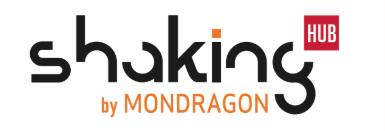FLASH-COMP: Composite manufacturing, right first time
The reduction of manufacturing waste is a key part of Europe’s planned transition towards climate neutrality. Composite materials represent an excellent target for reducing waste as they play an important role in several of the EU’s strategic manufacturing sectors, including energy, aerospace, naval and automotives. Liquid resin infusion (LRI) is one of the most widely used composite manufacturing processes, accounting for about 33% of composite parts produced in Europe. It is used especially in the production of large parts such as wind turbine blades, airplane parts and ship decks. Despite the high value of the parts produced using this process, both the material processing and quality control are largely done manually at the end of the manufacturing process, after which the parts are repaired or, if defects are too severe, discarded.To overcome the lack of automated in-line control and to guarantee that defects that arise during the process are not propagated to the final product, LRI manufacturing processes use far more raw materials than are needed for the final product, resulting in an excessive amount of waste.In this context, controlling and reducing the generation of defects by adopting “first-time-right” manufacturing strategies based on novel in-line inspection and monitoring and advanced control strategies – known as a zero-defect manufacturing approach – is of high interest in LRI-based manufacturing processes, as it would allow the amount of material used to be optimised, reduce the reworking time, and reduce the number of fully rejected parts. It is estimated that a reduction of waste of more than 30 % can be achieved via such an approach. Instructions will be linked to a real-time decision support system which will allow workers to take instant and precise corrective actions, paving the way towards “right-first-time” manufacturing. The smart knowledge will be fed from interoperable and sovereign data sharing between sites and factories. In this way, the composite sector will take advantage of the latest technological innovations to digitalise manufacturing processes towards a more sustainable and competitive composite industry.
Working toward this end, during the first six months of the project special emphasis was put on definition of project requirements to achieve first project milestone : project specifications defined. This includes use case specifications, monitoring and inspection system specifications, KPI´s definition, Global Architecture and Data Spaces definition and Human specifications in terms of required skills/training and needs by operators. Not only that, Quality Management Plan and Data Management Plan were also defined within this period. Finally, the Plan for Communication, Dissemination and Exploitation (PCDE) was also described including the creation of the project website ▶️ https://flashcomp.eu.com.


